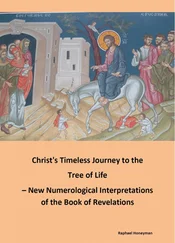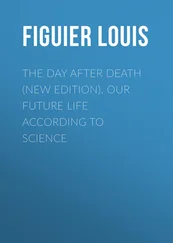As the third edition was being written, some of the same motivations that drove the first edition piled back in. Not least the return to the streets of the homeless who had largely been absent, and largely to at least some level cared for, for the previous decade and more. If we are all in this together, for them at least, it does not show. And because if the first edition was written in part for those who did not know life before Margaret Thatcher, this one is in part written for those who, if they remember him at all, believe only that Tony Blair was a war criminal.
It comes at a most opportune time, and a most inopportune one. It is opportune because it is just ahead of the seventy-fifth anniversary of the Beveridge report and of the seventieth anniversary of two of the key pillars of Britain’s modern welfare state: its social security system and its National Health Service. A good time to bring the story up to date, and thus to reflect.
It is inopportune because on 23 June 2016 Britain voted to leave the European Union. The impact of Brexit on the welfare state, for good or ill, may well be profound, though in ways we can only guess. For that and other reasons this edition ends full of question marks. But there have been plenty of other occasions over the years when the welfare state has been called into question – as I hope its biography shows.
This edition, like the first, remains the work of many more people than me.
In addition to all those who gave up time for interviews and who – where they can be – are acknowledged in the endnotes, there remain many additional IOUs. A completely comprehensive list would run to many more than these pages.
For the second edition, my primary debts include my professorial Peters, Peter Kemp at Glasgow University, and Peter Scott, then vice-chancellor of Kingston University, who rescued me with references and lessons on housing and higher education, as did Richard Layard of the London School of Economics on the labour market and employment policy. John Perry of the Chartered Institute for Housing and Stuart Maclure, along with John Carvel and David Brindle of the Guardian, also provided important compasses. Andrew Dilnot, at the time director of the Institute for Fiscal Studies, bullied me into giving a lunchtime seminar on where I had got to, even before I had: an excellent discipline. Along with Richard Layard, John McTernan, Alan Langlands, John Perry and Julian Le Grand, he read drafts of the additional text for the second edition, as did two civil servants who, even now, I cannot thank, much as I would like to.
Between the second and third editions I also owe thanks to an emeritus professor of classics at Durham, whose name I have alas long since lost, who wrote a very sweet note pointing out that the famous words of Petronius on p. 290 are in fact a cod quote. He had, he said, traced it to occupied Berlin after the war, where a presumably classically trained and deeply frustrated British officer had pinned it to a bulletin board from whence, in the days before the internet, it had, so to speak, gone viral.
The second edition – and indeed the third – owe a great deal to the members of the public policy team at the Financial Times who taught me much over the years, particularly Jim Kelly, Miranda Green and Chris Cook, successive education correspondents. My debts at the FT go much wider, not least to Richard Lambert, Lionel Barber and Robert Shrimsley, who gave me wings to fly, but also to Robert Chote, Chris Giles and Martin Wolf, each of whom sought to beat some economics into me, and also to Patti Waldmeir, who shouted at me that I did not understand US welfare reform to the point where I finally did; or at least understood it better. Again at the FT, Peter Cheek in the library dug cuttings out of basements and conjured documents out of nowhere. Outside the FT, Andy Cowper of Health Policy Insight has been, variously over the years, both a great editor and an endless source of inspiration and humour. At HarperCollins I also had the immense privilege of being edited again by Philip Gwyn Jones and Georgina Laycock, who have gone on to better things than seeking to sort me out. The second edition, like the first, was also read by Tony Bevins, and was, as is this in part, in his memory. He liked it, and one could not ask for more. He would doubtless have improved this edition. Howard Glennerster’s and Rudolf Klein’s repeatedly updated editions of their British Social Policy since 1945, and The New Politics of the NHS, plus their other writings, were critical guides to both that edition and this.
For the third edition – which fills in sixteen missing years, rather than the six between editions one and two – most of those cheques are there to sign again, and many more. Aside from the interviews, I owe huge amounts to the many present and former staff at the institute for Fiscal Studies, but most particularly to Carl Emmerson, Mike Brewer and Paul Johnson, and over the years to many at the London School of Economics, particularly but not only to Nick Barr, Gwyn Bevan and Tony Travers, and most especially to John Hills and his team at the Centre for Analysis of Social Exclusion (CASE). Not just for all their many publications – and an analysis of CASE’s output from The State of Welfare in 1989 to Social Policy in a Cold Climate in 2016 would probably make a PhD thesis in its own right – but for many conversations. At King’s College, London, I am in debt to Alison Wolf.
Countless other academics, think-tank practitioners and special advisers have sought to keep me on the straight and narrow over the years, often from sharply differing viewpoints. Any list is invidious, but those who must be mentioned include in random order Alan Maynard, Paul Gregg, Peter Taylor-Gooby, Alan Smithers, Nick Bosanquet, Tony Culyer, Mike Rawlins, Nick Black, Jane Millar, Nick Mays, Colin Talbot, Simon Burgess, Carol Propper, Bill Morgan, Nick Seddon, Ruth Lister, Fran Bennett, Andrew Haldenby, Olly Grender, Anita Charlesworth, and in earlier days, when they were doing different things, Rick Nye, Danny Finkelstein and Geoff Mulgan.
The third edition was made easier by work already done for the Institute for Government, the King’s Fund and the Health Foundation which helped tell the update to this story. These include Never Again?, Universal Credit and Glaziers and Window Breakers, which are referenced and are now in the bibliography, not as an act of self-aggrandisement, but because they tell parts of this story in more detail and contain the source for many of the quotes.
Those publications would not have been possible without the support of Chris Ham, Andrew Adonis, Peter Riddell, Jennifer Dixon, Jill Rutter, Julian McCrae, John Appleby and Nigel Edwards, and the immense help of, among others, Philippa Stroud, Iain Duncan Smith, David Freud, David Nicholson, Stephen Brien, and a whole clutch of civil servants who, by convention, have to remain anonymous.
Even since the second edition, there has been an explosion in political ‘instant history’, not least Anthony Seldon’s multiple accounts as either author or editor of the Blair, Brown and Cameron years. These helped no end, and in places go into much more of the gory political row around some of the issues than has been possible here. But if I had to recommend just two political histories that cover the third edition, it would be Andrew Rawnsley’s magisterial accounts of the Labour years, Servants of the People and The End of the Party, and Matthew d’Ancona’s excellent In It Together for the coalition period.
For getting this edition to publication my biggest single piece of thanks goes once again to Peter Hennessy, who inspired this in the first place, and who found me a way back into HarperCollins that was defeating me. The next two go to Julian Le Grand of the LSE and Matthew Taylor at the Royal Society of Arts. Julian, as with the earlier editions, suffered all of this in draft, making many helpful suggestions and corrections while also, crucially, solving a major structural problem. Matthew, in conversation, not only donated the core of the final conceit but also, critically, delivered the very last line. Debts don’t get much bigger than that, and to both I am immensely grateful.
Читать дальше
![Nicholas Timmins The Five Giants [New Edition]: A Biography of the Welfare State обложка книги](/books/701739/nicholas-timmins-the-five-giants-new-edition-a-cover.webp)











